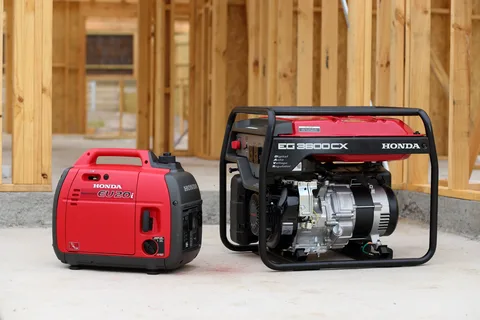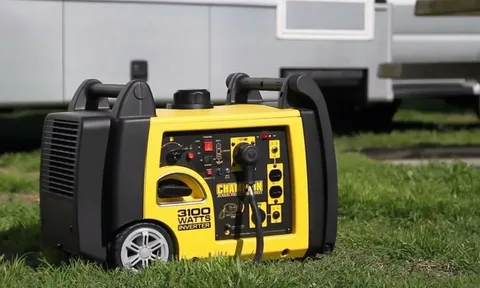Generators Brisbane are crucial in ensuring uninterrupted power supply for commercial establishments. Whether a small business or a large corporation, having a reliable backup power source can prevent costly downtime and maintain productivity. In this blog post, we will discuss the importance of generators in Brisbane, how to identify your power requirements, types of generators available, factors to consider when choosing a generator, sizing generators for commercial use, installation considerations, maintenance tips, cost implications, safety practices, and their role in emergency preparedness.
Understanding the Importance of Generators in Brisbane
In the bustling city of Brisbane, generators emerge as a cornerstone for business continuity amidst power disruptions. The city’s commercial landscape is peppered with many establishments that depend on uninterrupted electrical supply to serve customers effectively and safeguard their assets. The significance of generators extends beyond mere convenience, acting as a critical component in preventing operational halts.
During power outages, which may arise due to severe weather conditions or grid failures, generators fill the void, ensuring essential systems remain operational. This seamless transition to backup power mitigates potential revenue losses and upholds a business’s reputation by demonstrating reliability to its clientele.
Furthermore, a generator within a commercial setup in Brisbane safeguards against data loss, a common casualty during unexpected power cuts. In essence, generators provide a shield against the unpredictability of power supply, making them indispensable in the modern commercial realm of Brisbane.
 Identifying Your Business’s Power Requirements
Identifying Your Business’s Power Requirements
Determining the power needs of a commercial establishment in Brisbane requires a meticulous evaluation of the operational demands during electrical outages. The initial step involves listing all essential equipment and systems that necessitate continuous power supply to ensure the smooth running of the business.
The list may encompass critical computing infrastructure, refrigeration units, security systems, and lighting, among others. Subsequently, the total wattage consumption of these components needs to be calculated. This calculation includes the power required to start each piece of equipment (which often exceeds the running power) and the cumulative load that would be active concurrently during an outage.
Establishments must also anticipate future expansions or technological additions, incorporating a margin into their calculations to accommodate growth without necessitating immediate upgrades to the power backup solutions. This thorough approach guarantees that the selected generator will adequately meet the establishment’s requirements, thus preventing operational interruptions and financial losses during unplanned power disruptions.
Installation Considerations for Generators in Brisbane
Installing a generator for a commercial establishment in Brisbane requires careful planning to ensure operational efficiency, safety, and compliance with local regulations. Here are critical subheadings to consider:
Site Selection
Choose an installation site that provides ample ventilation, ease of access for maintenance, and complies with Brisbane’s building codes.
Noise Control
Implement noise-reduction measures if the generator is located near sensitive areas to adhere to local noise ordinances.
Fuel Storage
Properly plan for fuel storage, considering the generator’s fuel type and ensuring compliance with Brisbane’s environmental and safety standards.
Electrical Integration
Secure the services of a professional electrician to integrate the generator into the existing electrical system safely and effectively.
Local Regulations
Adhere to all relevant Brisbane and Queensland regulations, including obtaining necessary permits before installation begins.
Types of Generators Available in Brisbane
In Brisbane, the market for generators is diverse, catering to the varied needs of commercial establishments with options that span diesel, petrol, natural gas, and propane-powered units. Diesel generators are celebrated for their durability and efficiency in fuel consumption, making them a preferred choice for prolonged use.
Petrol generators, on the other hand, present a cost-effective solution, albeit with higher running costs due to the fuel type. Natural gas generators offer the advantage of being connected to the city’s gas supply, ensuring a continuous fuel source, a boon for locations where fuel storage poses a challenge. Propane generators are acknowledged for their clean burning and are less susceptible to fuel degradation over time.
Each type brings unique benefits, from operational efficiency to environmental considerations, and the selection hinges on the specific requirements and constraints of the commercial entity. The diversity in generator types ensures that businesses in Brisbane can find a suitable backup power solution that aligns with their operational needs and sustainability goals.
Factors to Consider When Choosing a Generator
Selecting the right generator for a commercial establishment in Brisbane involves a nuanced analysis of several key factors beyond the price tag and capacity. Fuel type is a primary consideration, with options including diesel, petrol, natural gas, and propane, offering distinct advantages and operational economies.
The size and power output of the generator should closely align with the calculated energy demands of the business to ensure efficiency and reliability without the expense of excessive fuel consumption or inadequate power supply. Noise level is another critical factor, especially for establishments in densely populated areas or those with noise restrictions, necessitating the selection of a generator that minimises disruption.
Finally, compatibility with existing electrical systems and compliance with local regulations is imperative to ensure the generator’s smooth integration and legal operation within a commercial setting in Brisbane. By carefully considering these aspects, businesses can secure a generator that effectively meets their needs and supports their operational continuity.
The Process of Sizing Generators for Commercial Use
The task of sizing generators for commercial use in Brisbane is an intricate process that hinges on the accurate determination of the power demands of a business. This process starts with a comprehensive audit of all critical systems and equipment requiring uninterrupted power supply to maintain operational continuity.
Each equipment’s starting and running wattage is meticulously compiled to determine a total power requirement. This figure should incorporate a buffer to account for future growth or the addition of new technologies, ensuring the chosen generator can handle additional loads without the need for immediate upgrades.
It is also prudent to consider the peak load scenarios and how often they may occur, as this influences the generator’s capacity requirements. Engaging with professionals with expertise in electrical systems and generator sizing can provide invaluable insights, ensuring the selected generator is neither oversized—leading to unnecessary expenditure and inefficiency—nor undersized, which could result in power shortages during critical moments.
The Role of Generators in Emergency Preparedness
In emergency preparedness for Brisbane’s commercial establishments, generators emerge as pivotal assets. They ensure operational continuity and fortify a business’s resilience against unforeseen power disruptions. The strategic incorporation of generators into emergency planning can mitigate risks associated with power outages, reinforcing safety and security protocols. Below are five key roles generators play in emergency preparedness:
Continuity of Operations
Generators provide a reliable power supply, enabling critical business operations to continue without interruption during power outages.
Data Protection
By keeping power flowing, generators prevent data loss from sudden shutdowns of digital systems, safeguarding important business information.
Health and Safety
Essential lighting and climate control systems remain operational, ensuring the health and safety of occupants within commercial premises.
Security Systems Functionality
Security systems, including surveillance cameras and alarm systems, continue functioning, maintaining premises security against potential vulnerabilities.
Customer Confidence
Demonstrating preparedness and the ability to operate during power outages enhances customer trust and business reputation.
In essence, generators stand at the forefront of a commercial entity’s emergency preparedness strategy, encapsulating a multifaceted approach to maintaining operational integrity in power disruptions.
Maintenance Tips for Keeping Your Generator in Top Condition
Ensuring a generator remains in optimal condition is fundamental to its reliability and longevity, particularly for commercial entities in Brisbane that depend on this backup power in emergencies. Routine inspections are advised to identify potential issues before they escalate.
It includes verifying fuel levels to avoid running out during critical times. Regular replacement of oil and filters is also paramount, as these are essential for the smooth operation of the generator. Periodic testing under load conditions can reveal any operational inefficiencies or faults that need addressing.
Additionally, keeping the generator’s exterior clean from debris and checking for any signs of wear and tear in components can prevent unexpected failures. Adhering to these maintenance practices ensures that when the need arises, the generator will operate efficiently, providing a reliable power source to maintain business continuity.
Understanding the Cost Implications of Generators Brisbane
The investment in Generators Brisbane for a commercial entity encompasses the purchase price, installation, and ongoing operational expenses. The initial acquisition cost varies significantly depending on the type, size, and fuel requirements of the generator selected to meet the establishment’s needs.
Installation costs further inflate the initial outlay, requiring professional services to ensure compliance with local regulations and optimal operational setup. Operational costs, including fuel consumption, routine maintenance, and potential repairs, form an ongoing financial commitment.
However, these expenses must be weighed against the possible economic repercussions of operational downtime during power outages. The economic implications of procuring a generator extend beyond the upfront purchase, embedding into the operational budget of Brisbane commercial establishments as a safeguard against unforeseen power disruptions.
Safety Practices for Generator Use in Commercial Settings
In commercial settings across Brisbane, implementing rigorous safety practices for using generators is non-negotiable. The operation and maintenance of these power sources must adhere strictly to the manufacturers’ guidelines. One of the critical aspects of generator safety is ensuring adequate ventilation.
The measure prevents the build-up of carbon monoxide within the premises, a colourless and odourless gas that poses significant health risks. Equally important is the proper earthing of generators, which cannot be overlooked as it significantly reduces the risk of electrical hazards, protecting the equipment and the individuals within the establishment.
Additionally, commercial entities need safety protocols for fuel handling and storage, particularly for establishments utilising petrol or diesel generators, to mitigate fire risks. Adherence to these safety practices guarantees a safer working environment while harnessing the benefits of backup power systems.
Conclusion
In wrapping up, the significance of Generators Brisbane for commercial establishments cannot be understated. The journey from understanding the need through sizing and installation to implementing maintenance practices and safety protocols underscores the role of generators in ensuring business continuity and operational resilience. With the correct approach to selection and management, generators become a reliable ally against power disruptions. This exploration sheds light on the nuanced considerations businesses must navigate to secure their power supply, ultimately contributing to Brisbane’s prepared and robust commercial environment.
FAQs
What types of generators are offered in Brisbane?
In Brisbane, commercial establishments can access diesel, petrol, natural gas, and propane generators, each suited to different operational requirements and fuel availability scenarios.
How does one ascertain a business’s power needs?
Calculating the power requirements involves listing all essential equipment and tallying up their starting and running wattage to ensure the generator can handle the cumulative load, including a buffer for future growth.
Which criteria are important when selecting a generator?
Key considerations include fuel type, generator size, and power output that match the business’s energy demands, noise levels, maintenance ease and costs, compatibility with existing electrical systems, and adherence to local regulations.
How Generators Brisbane are correctly sized for commercial purposes?
Proper sizing for Generators Brisbane requires a detailed analysis of all critical systems’ power consumption, incorporating peak load scenarios and potential future expansions to select a generator that won’t be under or oversized.
What are the best maintenance practices for generators?
Routine inspections, verification of fuel levels, regular oil and filter replacement, load tests, and keeping the generator clean are essential to ensure it remains in optimal condition for emergency use.
| Other Good Articles to Read |
| Blogs Rain |
| Cme Blog Spot |
| Garcias Blogs |
| Yyc Blogs |
| Guiade Blogs |
| Blogs-Hunt |
| Impact-Blog |
| Smarty Blogs |
| Ed Blog |
| Mo Blogs |
| Blogs Em |
| Blogs T |
| Related Business Listings |
| Contact Directory |
| Local Business Profiles |



